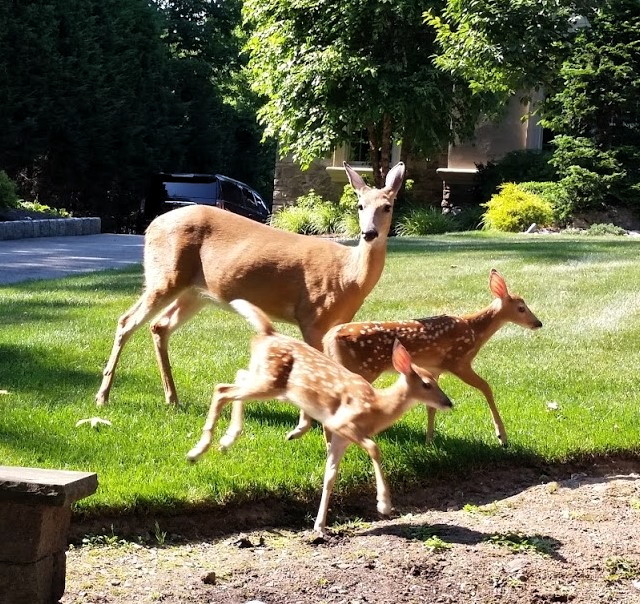Pennington Borough Council members have discussed supporting a resolution to create a deer management program in the municipality.
The resolution was first passed by the Pennington Board of Health on Feb. 19 and was discussed in principle at the March 3 council meeting.
According to officials, it was not formally introduced for a vote in March, but is set to be introduced in the April 6 council meeting, which will be held inside of Borough Hall.
“Once approved, the program will be organized by volunteers and who will work with the nearby programs to implement a program based on those already in place,” Councilman Glen Griffiths said. “Meanwhile, Pennington is contributing to an unmanned aerial survey using infra-red imaging to identify migration and grazing patterns that will produce the data needed to implement an effective and efficient program.”
He explained that the deer population in Hopewell Valley is 10 times more than what the available land and forest can support.
“Consequently, deer have become a hazard to human health causing more than 400 vehicle collisions annually and spreading tick and feces-borne diseases, including Lyme, Q fever, chlamydiosis, leptospirosis, campylobacterosis, salmonellosis, cryptosporidiosis, and giardiasis. Property, crop and forestry damage from deer grazing are rampant,” Griffiths said. “While Mercer County, Hopewell Township and several local land conservation organizations have active deer management programs, Pennington Borough does not, and deer apparently use Pennington as a “safe retreat.”
Officials stated that deer populations were held in check by natural predators, including wolves, coyotes and bears.
“Land development has crowded out these predators, upsetting the ecosystem and allowing the deer population to surge to unnatural levels. The reason for the deer management program resolution is to support the implementation of a program to reduce deer population in and around Pennington Borough, in conjunction with surrounding programs,” Griffiths said. “I support the resolution and look forward to a program starting in the Fall of 2020.”

